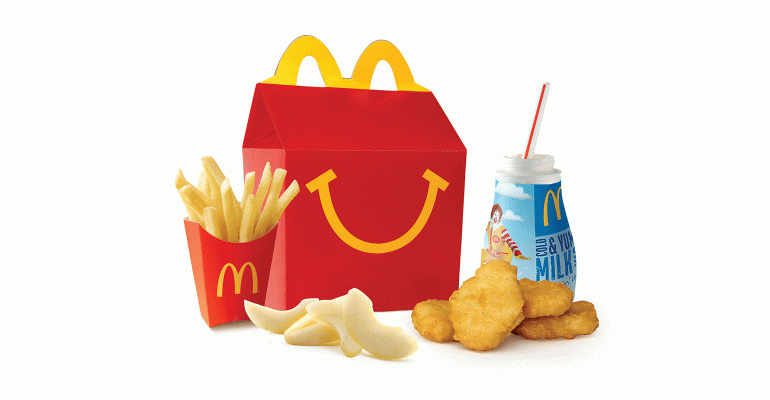McDonald’s is one of the first big chains in the U.S. to begin widespread testing of plastic straw alternatives.
In Seattle, the Chicago-based chain and other restaurants and food venues doing business there have no choice.
Seattle is believed to be the first city in the U.S. to ban the use of plastic straws. The ban went into place July 1, a move that’s in line with the city’s progressive standards when it comes to saving the planet.
The city banned foam products in 2009. A ban on non-recyclable or non-compostable food packaging and service ware took effect in 2010.
The natural next step was to ban all single-use plastic straws, spoons, forks, and knives. Foodservice businesses in the city must now use compostable straws and utensils, according to the Seattle Public Utilities division.
McDonald’s, which operates 14,000 restaurants in the U.S., has been working to find a “more sustainable solution for plastic straws globally,” the company said.
“Legislation in the U.S. on straws varies by jurisdiction. We have adopted compostable straws in certain markets — like Seattle — to meet regulations,” McDonald’s told NRN in a statement.
With the anti-plastic straw movement gaining steam worldwide, McDonald’s has been focusing on alternatives straw options outside the U.S.
In June, the Chicago-based chain said it started phasing out plastic straws in about 1,300 restaurants in the United Kingdom and Ireland. The United Kingdom in April became the first country to ban plastic straws and stirrers, in a move to be implemented next year.
McDonald’s said it plans to replace plastic straws with paper straws in restaurants starting in September. The transition to alternative straws in those countries should be complete in 2019. Belgian restaurants are also testing straw alternatives, with more trials planned for select restaurants in the U.S. At the time, McDonald’s did not name the U.S. markets where it planned to experiment with straw alternatives.
But it’s clear that Seattle is one of them. McDonald’s and other restaurants in Seattle would face fines of up to $250 in Seattle if they’re not compliant.
Francesca DeBiase, executive vice president of global supply chain and sustainability, said McDonald’s is testing various options to ensure they provide “the best experience for our customers.”
McDonald’s maintains that it wants to be a leader when it comes to addressing pressing social and environmental challenges – from reducing carbon footprint to sourcing 100 percent of guest packaging from renewable, recycled, or certified sources.
“We understand that recycling infrastructure, regulations and consumer behaviors vary from city to city and country to country, but we plan to be part of the solution and help influence powerful change,” McDonald’s said.
Seattle-based giant Starbucks is also complying to the ban in their home market. "While our Starbucks cups have long been recyclable in our Seattle stores, as of July 1, we now offer new compostable straws, splash sticks, and cutlery to these customers," the company told NRN in a statement late Friday.
High-profile independent restaurant companies such Lettuce Entertain You Enterprises, or LEYE, and Eataly also have pledged to stop using plastic straws, which can end up in waterways and oceans and harm marine animals and wildlife.
Chicago-based LEYE said it plans to be plastic-straw-free by Oct. 1.
The group’s restaurants will shift to the use of biodegradable alternatives, including paper and biodegradable plastic — as well as all-natural straws made of hay, or wheat stems, and bamboo. The company operates 120 restaurants across nine states. It does not have any restaurants in Seattle.
According to the recycling nonprofit Eco-Cycle, an estimated 500 million plastic straws are used in the U.S. each day, an amount that would fill more than 127 school buses or wrap around the globe more than twice.
Contact Nancy Luna at [email protected]
Follow her on Twitter: @FastFoodMaven





